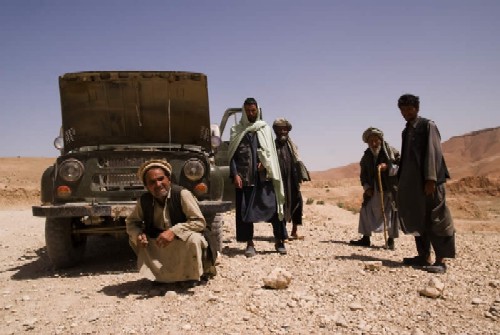Artist David Cotterrell was on Radio Four this morning talking about his installation Theatre that opened last weekend as part of the War and Medicine exhibition at the Wellcome Collection (until Feb 15th 2009). Cotterrell initially went to Afghanistan with the Army to document the medical facility Camp Bastion; it's a collection of his photographs and videos there and closer to the front line. There was a poignant moment when he talked about the awkwardness of the artist as observer:

Sarah Montague: How did you feel going there, because you're an artist and you're an extreme situation where someone's live is in the hands of the other people around and - I hate to say you're just standing, watching - but did you feel incredibly uncomfortable.
David Cotterrell: There's a great deal of guilt in being an observer at a trauma and it's extremely difficult to rationalise your own position. I was jealous of the medics who had a very clear role, and for me it was my moral and ethical justification for being there was something that was being defined as I stood there. It became obvious that to people around me they felt it was valuable having a witness, somebody who would actually keeping a record of something which they felt was under-represented and should be more discussed and understood by the wider public.
I arrived back in Britain feeling a great sense of anger. I was frustrated by my previous ignorance of the frequency of injury. Soldiers are surviving wounds that would often have been fatal in previous conflicts. Body armour, medical training and the proximity of advanced surgery to the front line have led to a "disproportionate" number of casualties surviving.
In the media, we hear only about the deaths, with occasional reference to the wounded. I came home assuming the violence I had witnessed in Afghanistan would be the focus of the news. But reality television, local politics and other less dramatic events occupied the headlines. For me, the incongruity between what I had seen and what was presented as the public face of conflict was, and continues to be, profound and irreconcilable.


Be the first to write a comment
Please login to post a comment or reply.
Don't have an account? Click here to register.